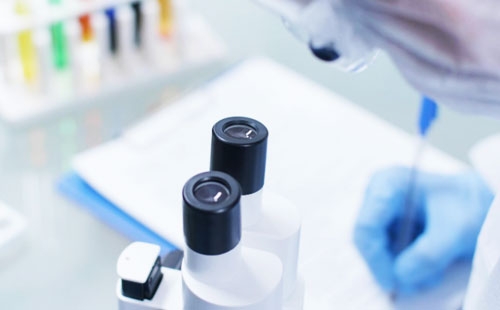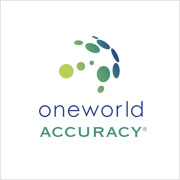
Whole exome sequencing (WES) is the process of screening protein coding regions (exons) and their surrounding intronic regions in ~21,000 genes of the human genome and reporting disease-causing changes in these regions.
The coding region represents 2% of the human genome, but contains about 85% of disease-causing mutations. While most genetic tests until recently screened only a single gene or a few genes thought to be associated with disease, WES tests screen thousands of genes simultaneously.
This makes WES one of the most effective methods for identifying complex genetic problems. With whole exome sequence analysis, all exons in the human genome are subjected to sequence analysis and it is of great importance in making a definitive diagnosis of the disease, especially for patients with no clinical diagnosis.
In 2018 studies*, it was reported that the diagnostic success of whole exome sequencing analysis was 34% in trio analysis (mother-father-child) and 26% in single analysis. This rate varies depending on the type of disease being studied, whether trio analysis is used or not, and the inheritance pattern of the selected disease.
*Nick Dragojlovic et al. GENETICS in MEDICINE,2018
One of the issues to be considered in sample selection for exome sequencing is the expected mutation type as well as the inheritance pattern of the disease. Large translocations, copy number changes, mitochondrial genome mutations, epigenetic factors, mosaic mutations, uniparental dizomy, GC-rich region repeats, nucleotide repeat diseases and mutations expected in genes with very similar pseudogenes cannot be detected by exome sequencing. For copy number variations, special bioinformatics interfaces or algorithms can be used.
Trio analysis has a much higher diagnosis rate than single whole exome sequencing analysis (approximately 34% vs. 26%). This is due to the possibility to analyze according to inheritance pattern (autosomal recessive, autosomal dominant, X-linked inheritance) in trio analysis. In addition, in order to identify de novo mutations, a trio analysis including mother-father-child samples is required. However, single whole exome sequencing analysis is recommended for patients who cannot have trio analysis for economic reasons or in cases where the clinical diagnosis is very strong.
The patient is referred to the Private Ankara Genetic Diseases Diagnostic Center. Here, a detailed clinical history is taken by genetic specialists and the patient's physical examination and dysmorphic examination findings are recorded. A family tree including at least 3 generations of the family is drawn. Patient consent for the test to be performed and a blood sample for the test is taken.
If the patient is unable to come to our center;
WES Testi, genetik hastalıkların teşhisinde önemli bir araçtır çünkü genetik hastalıklara neden olan çok sayıda geni aynı anda analiz edebilir. Bu, genetik hastalıkların teşhisini hızlandırabilir ve daha önce teşhis edilemeyen hastalar için yanıtlar sağlayabilir.
Özel Ankara Genetik Laboratuvarı, WES teknolojisi ile genetik hastalıkların teşhisinde öncü bir rol oynar. Laboratuvarımız, genetik testlerin doğru ve zamanında yapılmasını sağlayarak, hastaların ve ailelerinin gereksiz stres ve belirsizlikten kaçınmalarına yardımcı olur. Ayrıca, laboratuvarımızın genetik danışmanları, test sonuçlarını anlamak ve ne anlama geldiğini öğrenmek için hastalar ve aileleriyle birlikte çalışır.
Gen havuzumuz, genetik çeşitliliğimizin bir göstergesidir ve genetik hastalıkların teşhisi ve tedavisinde önemli olmaktadır. Gen havuzumuz, genetik hastalıkların teşhisinde kullanılan genetik testlerin doğruluğunu ve etkinliğini belirler. WES, gen havuzumuzdaki genetik çeşitliliği analiz ederek, genetik hastalıkların teşhisi ve tedavisinde önemli bir araç olabilir.
Laboratuvarımız, hızlı ve kaliteli genetik test sonuçları sağlayarak, hastaların ve ailelerinin gereksiz stres ve belirsizlikten kaçınmalarına yardımcı olur. Her zaman en güncel ve doğru bilgi için bir sağlık profesyoneli ile görüşmek en iyisidir.
Tüm Egzom Sekanslama (Whole Exome Sequencing - WES),genetik bilgilerimizin büyük bir bölümünü içeren 20.000'den fazla genin (ve bunların çok sayıda eksonlarının) genetik bilgilerini tek bir testte inceleyebilir. Bu, genetik hastalıkların teşhisinde önemli bir araçtır çünkü genetik hastalıklara neden olan çok sayıda geni aynı anda analiz edebilir.
Örnek türü olarak genellikle kan örneği kullanılır. Ancak bazı durumlarda, özellikle prenatal testlerde, amniyotik sıvı veya koryon villus örneği gibi diğer örnek türleri de kullanılabilir.
WES Testi sonuçların alınması genellikle 6-10 hafta (2-3 ay) içinde verilmektedir. Bu süre, laboratuvarın iş yüküne, testin karmaşıklığına ve diğer faktörlere bağlı olarak değişebilir. Ancak genel olarak, WES sonuçlarının alınması genellikle 1.5 ila 2 ay arasında sürer.
Our center mainly provides services in the fields of genetic counseling, cytogenetics, molecular cytogenetics and molecular genetics. The problems of our patients who apply to our center, which are thought to have genetic causes, are helped by using up-to-date information and technology.
Chromosome disorders form an important category of genetic disease. Cytogenetic tests examine the number and morphology of chromosomes.
Diseases that cause deterioration of human health and change the living order are diagnosed and detected through molecular tests.
It is a discipline that expands the scope and increases the diagnostic value of routine chromosome analysis with the combined use of molecular biology and cytogenetic techniques.
Diagnosis of cancer at an early stage greatly affects the success of cancer treatment. Many cancer tests are performed in our genetic diagnosis center.



We offer genetic analysis and clinical consultancy services at the highest technology and quality standards, using the most up-to-date scientific knowledge, diagnosis and treatment methods.